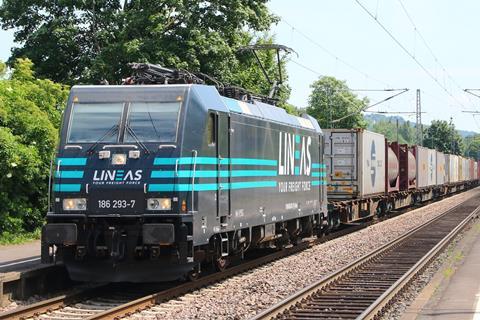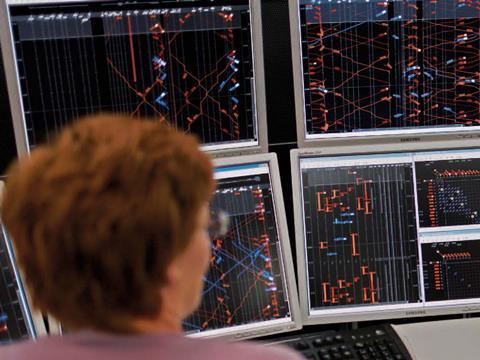
EUROPE: Associations representing infrastructures managers and train operators have endorsed a joint call for EU funding to help roll out Digital Capacity Management to optimise the utilisation of the continent’s rail network for both freight and passenger traffic.
Signed in conjunction with a visit to Antwerpen by the Connecting Europe Express on October 4, the sector statement emphasises the need for boost modal shift to rail as part of climate change mitigation, which will require additional rail capacity. It argues that DCM would allow better use to be made of existing routes, reducing the need for new construction.
The joint statement has been endorsed by RailNetEurope, Forum Train Europe, the Rail Freight Forward initiative, the Community of European Railway & Infrastructure Companies, the European Infrastructure Managers association and the European Rail Freight Association.

The signatories estimate that DCM would only require around 5% of the cost of adding the comparable capacity by building new infrastructure, and could be delivered much more quickly. They argue that adopting an incremental approach to creating a single European digital railway infrastructure would allow customers to begin reaping the first benefits within two to five years.
As one of five ‘enabling technologies’ identified by Rail Freight Forward, DCM is intended to build on the ongoing European TimeTable Redesign programme being led by RailNet Europe. This is working to develop a digitised overview of the network, enabling infrastructure managers to address bottlenecks and accommodate more trains, as well as offering better and harmonised planning of maintenance work.
DCM would connect the IT systems of infrastructure managers and operators to facilitate a complete capacity management process from advance planning to live train running. Train operators would be able to order high-quality train paths for both long- and short-term services, making rail more attractive and competitive. Digital modelling would support automated path creation for both passenger and freight trains, using optimisation algorithms to inform the allocation process, and allowing high quality paths to be generated with a single click.
While the ‘TTR for Smart Capacity Management’ programme is already in progress, the joint statement estimates that an investment of around €675m from European and national governments will be required to fund full implementation.
Speaking at the Connecting Europe Express event in Antwerpen, Lineas CEO Geert Pauwels said ‘Digital Capacity Management is a game-changer. It will help infrastructure managers to make driving a train through Europe as easy as driving a truck.’

















